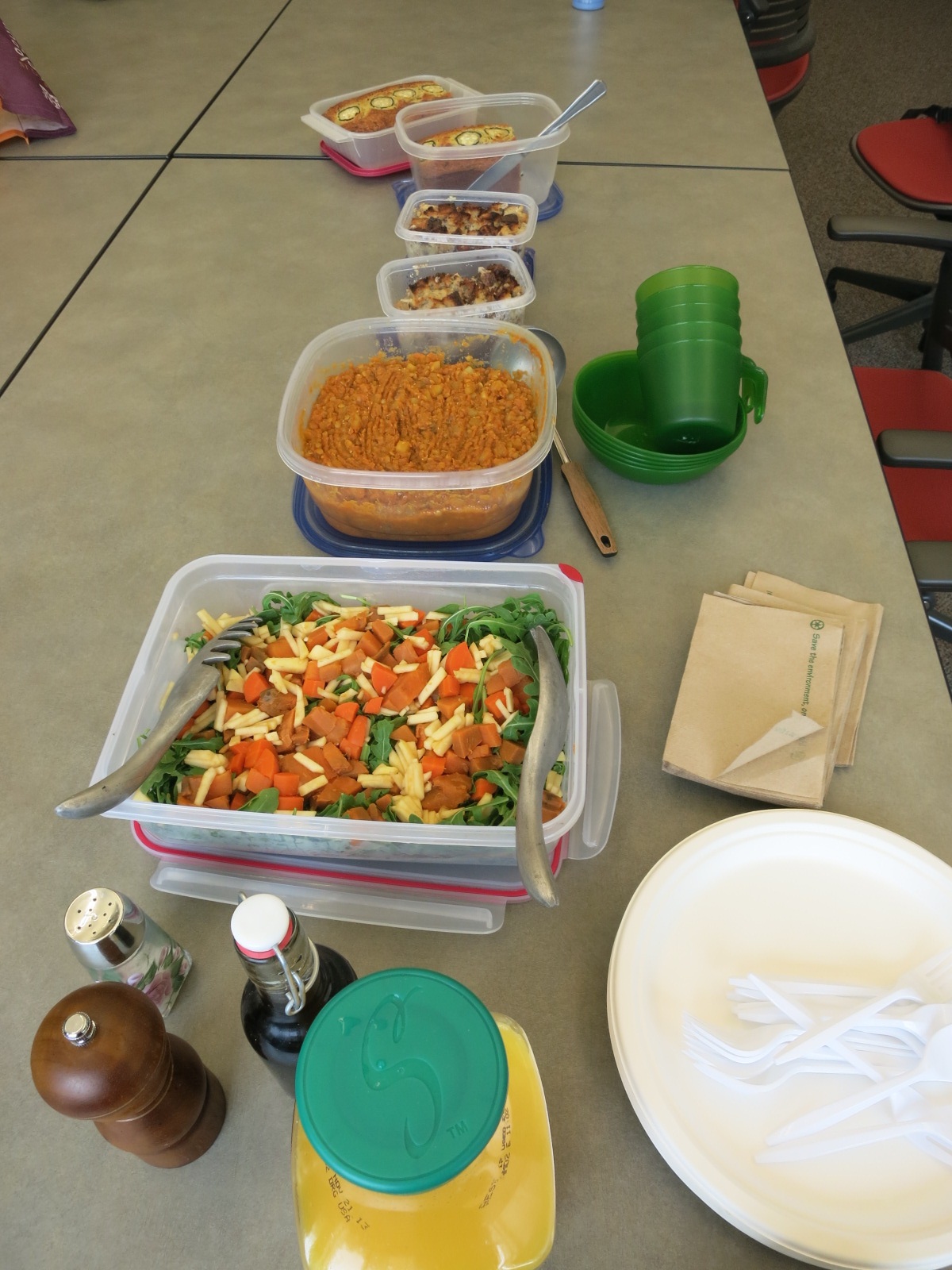 “Let’s share food and flavors we care about, and learn new recipes,” so began the entreaty by lab member and CSE PhD student Katie Kuksenok to start a lab tradition of sharing healthier homemade foods. Out with the pizzas and sodas and in with the fresh soups, salads, breads, and grains. The SCCL’s inaugural lab meal was a huge success, featuring delicious dishes fresh from Katie’s kitchen, including a savory pumpkin curry soup with lentils, a sweet potato cranberry arugula salad, and a chai spices mango bread pudding. Lab member Michael Brooks contributed warm corn bread, the perfect addition to this fall meal. SCCL director Cecilia Aragon commented, “judging from everybody’s delighted commentary and lip-smacking, it was a tremendous success.” Looking around at the empty dishes and big smiles after the meeting, we couldn’t agree more.
“Let’s share food and flavors we care about, and learn new recipes,” so began the entreaty by lab member and CSE PhD student Katie Kuksenok to start a lab tradition of sharing healthier homemade foods. Out with the pizzas and sodas and in with the fresh soups, salads, breads, and grains. The SCCL’s inaugural lab meal was a huge success, featuring delicious dishes fresh from Katie’s kitchen, including a savory pumpkin curry soup with lentils, a sweet potato cranberry arugula salad, and a chai spices mango bread pudding. Lab member Michael Brooks contributed warm corn bread, the perfect addition to this fall meal. SCCL director Cecilia Aragon commented, “judging from everybody’s delighted commentary and lip-smacking, it was a tremendous success.” Looking around at the empty dishes and big smiles after the meeting, we couldn’t agree more.
On next week’s menu: Korean style rice balls with vegetables, meats, and fish, and a mapo tofu side contributed from the kitchen of lab member and PhD student Ray Hong. Yum!


